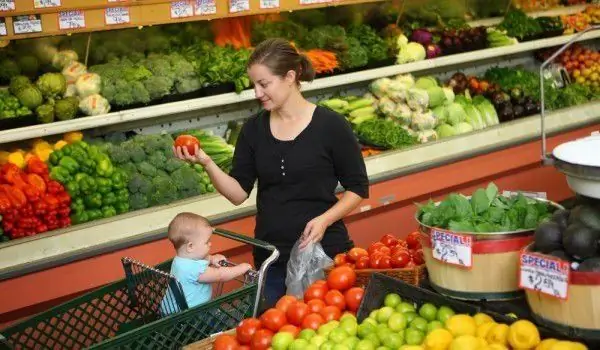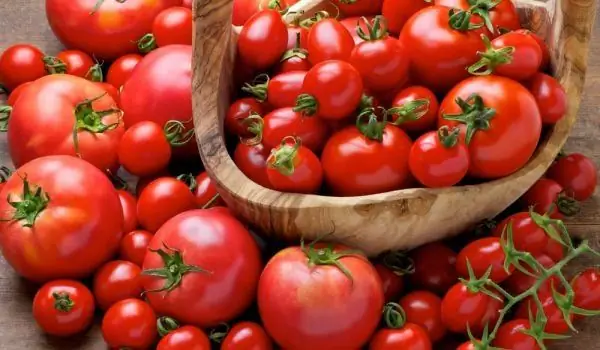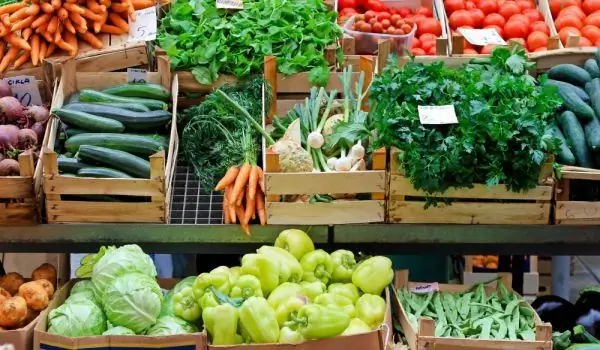2025 Author: Jasmine Walkman | [email protected]. Last modified: 2025-01-23 10:18
There are no Bulgarian vegetables in the markets. According to the Union Made in Bulgaria, nearly 78 percent of the fruits and vegetables sold in domestic markets and markets are imported.
An inspection by inspectors of the State Commission on Commodity Exchanges and Markets has found that there have been massive imports of vegetables from Albania in recent weeks. Fruits and vegetables are imported en masse from Greece, Macedonia and Turkey.
Meanwhile, an inspection of the capital's markets shows that all but one of the traders advertise their goods as Bulgarian. Not a single stall has lemons, tomatoes or cucumbers from Albania, where they actually come from. Instead, signs are placed everywhere that the tomatoes and cucumbers are from Plovdiv, etc.
In fact, imported fruits and vegetables do not differ in quality from Bulgarian ones. Traders prefer to hide their true origins from a purely psychological point of view, because Bulgarians avoid buying imported vegetables.
If you really like Bulgarian vegetables, you can bet on the salads that are grown in native greenhouses. Greenhouse cultivation of tomatoes and cucumbers in Bulgaria is unprofitable and expensive, and the products are exported abroad.

Even the potatoes currently available at the stalls are not home-grown. The fact is that in our country nearly 80,000 tons of potatoes are grown annually, which is not enough to meet the consumption, which is nearly 500,000 tons per year.
The situation is similar on meat stands. According to data from the Bulgarian Chamber of Commerce, nearly 84 percent of the meat in Bulgaria is imported.
These alarming data led experts to recommend that the state find a way to create conditions for protection and incentives for Bulgarian production, of course, without violating European regulations.
Recommended:
Unfit Vegetables Flood The Home Markets Due To The Blockade

The fruits and vegetables that flood the home markets are either unfit or just before spoiling due to the prolonged blockade of the Bulgarian-Greek border. The Secretary of the Bulgarian Association of Greenhouse Producers Georgi Kamburov informed about this danger.
Illegal Tomatoes Flooded The Home Markets

Bulgarian producers have alerted the institutions that tomatoes are imported into the country, which are sold at very low prices and are of dubious quality. Roma clans from the Pirin region are involved in the illegal trade, but so far no one has been held accountable for the illegal goods.
Another Scandal! Fake Cheeses With Palm Oil Have Flooded The Market

During an action of Active Consumers it was established that 9 of the cheese brands on the Bulgarian markets used palm oil or powdered milk. Another 27 brands have discovered a new scam - the addition of the enzyme transbutaminase. The news was announced by the chairman of the Active Consumers Association, Bogomil Nikolov, who stated that he would provide the test results to the Consumer Protection Commission.
Mass Inspections Of Fresh Fruits And Vegetables In The Markets

Inspectors of the Bulgarian Food Safety Agency ( BFSA ) begin mass inspections of domestic markets, exchanges, markets, warehouses and retail chains, where fresh fruits and vegetables are offered, according to the press center of the agency.
Horror! Poisonous Food From The Thessaloniki Stock Exchange Flooded The Domestic Market

The domestic market is literally flooded with low quality and poisonous products. Bulgarians are offered the leftovers from the Thessaloniki stock exchange. Our resellers take the cheaper stagnant goods and offer them in our country as fresh.

